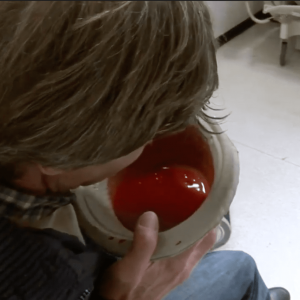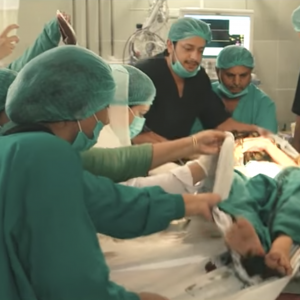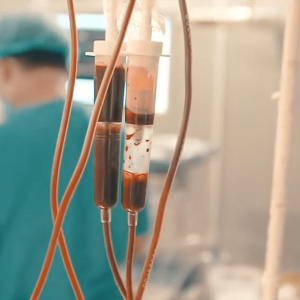Spontaneous Intra-cranial Bleeding
Spontaneous Intra-Cranial Haemorrhage (Haemorrhagic Stroke) is a leading cause of death and disability worldwide
Although there are treatments for Ischaemic Stroke (for example: thrombolysis and aspirin) there are no proven treatments for Intracerebral Haemorrhage
Research Overview
Spontaneous (non-traumatic) intracerebral haemorrhage is the cause of up to 20% of all strokes, yet accounts for nearly half of all stroke deaths worldwide. Survival after intracerebral haemorrhage has not changed for several decades, and the only intervention that improves functional outcome is an early intensive blood pressure lowering.
In patients with traumatic haemorrhage (including from head injuries), Tranexamic Acid (TXA) significantly reduces death due to bleeding and all-cause mortality, with no increase in vascular occlusive events.
The TICH-2 trial was TXA for hyperacute primary IntraCerebral Haemorrhage, and tested the hypothesis that intravenous TXA reduces death and dependence when given within 8 h of spontaneous intracerebral haemorrhage.
This was an international, randomised placebo-controlled trial in adults with intracerebral haemorrhage from acute stroke units at 124 hospital sites in 12 countries. Participants were randomly assigned (1:1) to receive 1 g intravenous TXA bolus followed by an 8 h infusion of 1 g TXA or a matching placebo, within 8 h of symptom onset.
The trial found intracerebral haemorrhage did not differ significantly between patients who received tranexamic acid and those who received placebo, despite a reduction in early deaths and serious adverse events.
Larger randomised trials are needed to confirm or refute a clinically significant treatment effect.
More Resources
Click on watch, read or teach to access videos, publications, and training materials
![]() TICH-2: Tranexamic acid for hyperacute primary IntraCerebral Haemorrhage (TICH-2)
TICH-2: Tranexamic acid for hyperacute primary IntraCerebral Haemorrhage (TICH-2)
An international randomised, placebo-controlled, phase 3 superiority trial
View PDF
![]() TICH-2: Outcomes in Antiplatelet‐Associated Intracerebral Hemorrhage in the TICH‐2 Randomized Controlled Trial
TICH-2: Outcomes in Antiplatelet‐Associated Intracerebral Hemorrhage in the TICH‐2 Randomized Controlled Trial
This is an exploratory analysis of the TICH‐2 (Tranexamic Acid in Intracerebral Hemorrhage‐2) double‐blind, randomized, placebo‐controlled trial
View PDF
![]() TICH-2: Protocol for an MRI sub-study nested within the double-blind randomised controlled TICH-2 trial
TICH-2: Protocol for an MRI sub-study nested within the double-blind randomised controlled TICH-2 trial
Does tranexamic acid lead to changes in MRI measures of brain tissue health in patients with spontaneous intracerebral haemorrhage?
View PDF
No information currently
More Treatments
TXAcentral is a resource for health professionals caring for people with acute bleeding
TXAcentral brings together randomised trial evidence on the effectiveness and safety of tranexamic acid
Data on many of the trials are also available at the freeBIRD website
In trauma patients with significant bleeding and those with traumatic brain injury (TBI), TXA has been shown to reduce mortality in both extracranial and intracranial bleeding
Postpartum Haemorrhage (PPH) is the leading cause of maternal death worldwide, responsible for around 100 000 deaths each year. TXA given as quickly as possible after birth and no later than 3 hours, reduces death due to bleeding and the need for surgery to stop bleeding
GI Bleeding is a common emergency that causes substantial mortality and morbidity worldwide. TXA was found to not reduce deaths from GI bleeding and showed an increased risk of thromboembolic events
Every year there are over 300 million surgical procedures worldwide. Bleeding is an important complication and many patients require a blood transfusion. TXA reduces blood loss in surgical patients by about one‐third. However, the effects of TXA on thromboembolic events and mortality in surgery are uncertain
There is ongoing research looking at how Tranexamic Acid (TXA) could be utilised for other bleeding conditions




